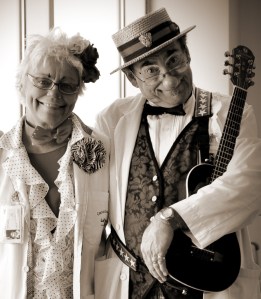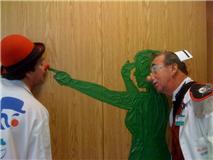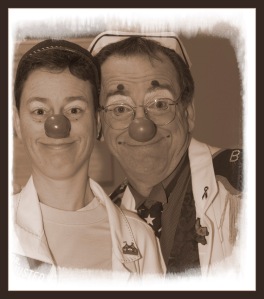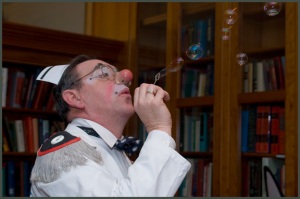These are some of the results from the program I loving called “Happy Hour”.
I was able to visit and perform for a local Alzheimer Care Center.
My first visit (Which I found to be one of the most beneficial to both clients and staff) began with a tour of the facility. I saw Day Rooms in all 3 wings.
In the first Day room, residents were watching a movie and all greeted me with a “Hello”. They were headed to the Dining room for other musical entertainment.
The second Day room was filled with family members, staff and 7 or 8 residents that seemed to be in various stages of focus.
I started with some songs and a health care assistant started with hand clapping. Within a half hour, people were dancing and singing. A joyous time, music can change the energy of a room; relieve stress in clients, family members and staff.
I was asked to visit a patient’s room and I was told she never comes out of her room.
When I arrived at the door I saw a woman sitting in a chair watching television. I went in with my guitar and asked if I could play a song for her.
She said, “Yes”.
The TV was turned off and I started playing. She started moving and grooving in her chair then she got up and started to dance like she was on stage. Staff came to the door, to witness the “Happening. The woman invited the staff to join in with the dance.
The health care assistant signaled me to come outside the room. I continued to play and she followed me out of her room to the Day room on that wing. She continued to dance. I played a couple of more songs down and then I was asked to visit a room at the end of the hall.
A patient was on Hospice. He was an older man on oxygen and asleep. He had 4 family members at bedside. I stood at the foot of the bed and sang “Old Bones”” The Torch” and “Happy Trails to You”
It was surreal and special. The family thanked me. I left and felt that the very first “Happy Hour” was a success. What a difference and hour can make !
The second “Happy Hour” was in the Big Room (Dining room). Clients came in from all three wings. Wheel chairs, walkers, canes and escorts. The staff had seated them in a theater style setting. I stood in the corner and did more of an impromptu show.
There were approximately 30 -40 clients in attendance, including my dancing friend who never comes out of her room. Although they seemed to be engaged with my songs and a polite audience, I felt I got more interaction in “the smaller houses”.
My third time there, I played the Garden. Again 30+ clients and staff gathered around under the awning. Some of the clients remembered me from last month.
We were up close and personal. More clients sang and people danced. A truly “Happy Hour” for all.











